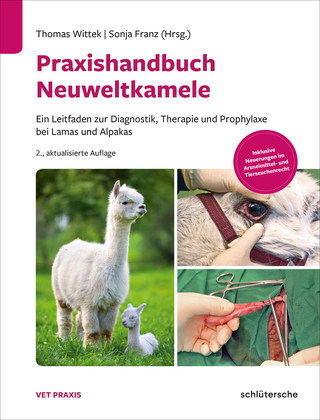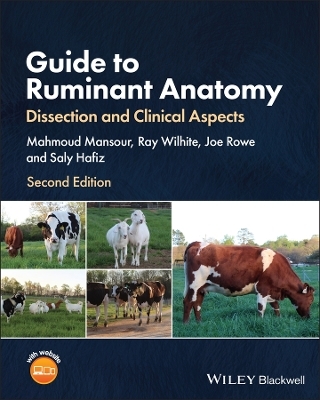
Carryover in feed and transfer from feed to food of unavoidable and unintended residues of approved veterinary drugs
Joint FAO/WHO Expert Meeting, FAO Headquarters, Rome, Italy, 8-10 January 2019
Seiten
2020
Food & Agriculture Organization of the United Nations (FAO) (Verlag)
978-92-5-131833-1 (ISBN)
Food & Agriculture Organization of the United Nations (FAO) (Verlag)
978-92-5-131833-1 (ISBN)
- Keine Verlagsinformationen verfügbar
- Artikel merken
Reviews the causes of veterinary drug carryover in animal feed and the transfer from feed to food, as well as known risks to human health and international trade, and suggests appropriate risk management strategies.
This report reviews the causes of veterinary drug carryover in animal feed and the transfer from feed to food, as well as known risks to human health and international trade, and suggests appropriate risk management strategies. The report is the result of an FAO/WHO Expert Meeting organized at the request of the Codex Committee on Residues of Veterinary Drugs in Foods. Carryover of veterinary drugs in feed can occur during feed processing, handling, transportation and delivery, as well as when feeding animals on-farm. It can cause adverse health effects both in animals and/or in humans consuming food originating from these animals. The publication recommends increasing awareness by providing easily accessible information about possible implications for carryover from the use of authorized veterinary drugs, notably as part of a structured training programme for all competent authorities, professionals and workers. It also calls for monitoring and control of raw feed ingredients that could be implicated in the transfer of veterinary drugs from feed to food.
This report reviews the causes of veterinary drug carryover in animal feed and the transfer from feed to food, as well as known risks to human health and international trade, and suggests appropriate risk management strategies. The report is the result of an FAO/WHO Expert Meeting organized at the request of the Codex Committee on Residues of Veterinary Drugs in Foods. Carryover of veterinary drugs in feed can occur during feed processing, handling, transportation and delivery, as well as when feeding animals on-farm. It can cause adverse health effects both in animals and/or in humans consuming food originating from these animals. The publication recommends increasing awareness by providing easily accessible information about possible implications for carryover from the use of authorized veterinary drugs, notably as part of a structured training programme for all competent authorities, professionals and workers. It also calls for monitoring and control of raw feed ingredients that could be implicated in the transfer of veterinary drugs from feed to food.
Founded in 1945, the Food and Agriculture Organization (FAO) leads international efforts to defeat hunger. Serving both developed and developing countries, FAO provides a neutral forum where all nations meet as equals to negotiate agreements and debate policy. The Organization publishes authoritative publications on agriculture, fisheries, forestry and nutrition.
| Erscheinungsdatum | 03.01.2020 |
|---|---|
| Reihe/Serie | FAO animal production and health report ; 13 |
| Verlagsort | Rome |
| Sprache | englisch |
| Themenwelt | Veterinärmedizin ► Großtier |
| Weitere Fachgebiete ► Land- / Forstwirtschaft / Fischerei | |
| ISBN-10 | 92-5-131833-6 / 9251318336 |
| ISBN-13 | 978-92-5-131833-1 / 9789251318331 |
| Zustand | Neuware |
| Informationen gemäß Produktsicherheitsverordnung (GPSR) | |
| Haben Sie eine Frage zum Produkt? |
Mehr entdecken
aus dem Bereich
aus dem Bereich
ein Leitfaden zur Diagnostik, Therapie und Prophylaxe bei Lamas und …
Buch | Hardcover (2023)
Schlütersche (Verlag)
149,00 €
Buch | Softcover (2023)
John Wiley & Sons Inc (Verlag)
185,00 €


